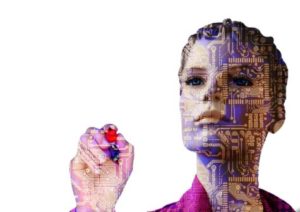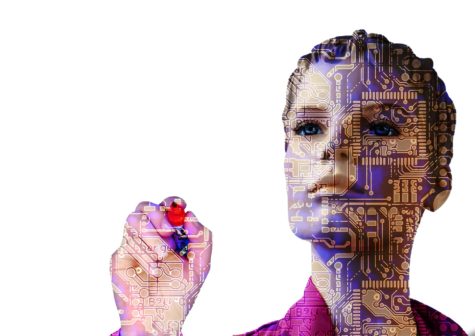WACO, Texas — If you’re afraid of losing your job to robots or artificial intelligence programs, you’re not alone, a new study finds. In fact, the very thought is causing a large segment of Americans enough anxiety to impact sleep and mental hygiene.
Researchers at Baylor University looked at data from The Chapman Survey of American Fears, a national survey conducted annually. In the survey, 1,541 respondents shared their thoughts on a number of issues, including politics, crime, mental health, employment, and technology. Participants were also polled on their levels of anxiety and restlessness, if they had any worrisome thoughts that affected their sleep habits or concentration, and other fears that impacted their daily life.

The researchers specifically honed in on participants whom they identified as “technophobes”— those who fear technological advances, such as robots entering the workforce or AI being used to make decisions for companies, largely due to a lack of understanding or trust.
They determined that 37% of individuals studied were technophobes, with the likelihood even higher for marginalized groups, such as non-whites, women, and undereducated individuals. Technophobes, the researchers found, were three times more likely to fear being axed at work in favor of an automated machine.
“This is a real concern among a substantial portion of the American population,” emphasizes Paul McClure, the study’s lead researcher, in a university release. “They are not simply a subgroup of generally fearful people.”
The study found that being a technophobe can also lead to other negative outcomes, such as as a dramatically heightened inability to control worrisome thoughts and emotions, as well as as a nagging fear that bad events are on the horizon. In fact, the study showed a technophobe has “95 percent greater odds of not being able to stop or control worrying when compared to others, and 76 percent greater odds of feeling as if something awful might happen,” according to the release.
Although technological advances have caused many jobs to go by the wayside in the past, many experts warn that this new wave of job loss may be more substantial.
In December, world-renowned physicist Stephen Hawking predicted that robots and AI would wipe out middle classes in factories and companies across the world. Crime-fighting robots were demonstrated for the media in Texas earlier this month, and there are machines being developed to take over a “wide range of military jobs” in the future. Even Dallas Mavericks owner Mark Cuban recently tweeted, “Automation is going to cause unemployment and we need to prepare for it.”
Neither blue- nor white-collar workers are safe, McClure warns, suggesting that a robotic uprising could cause unrest among those who could easily be replaced by a machine.
“People in certain occupations may legitimately fear losing their jobs to robots and software that can work for cheaper and for longer hours than any human,” he says.
Despite believing that the forthcoming wave of automation will occur gradually, McClure hopes that further research can be done into whether “technophobia [is] a legitimate social concern.”
He adds: “Anticipating the individual and social outcomes is a matter worth pursuing. .. “Regardless of whether technology might lead to certain people’s jobs becoming obsolete, the fear itself is real.”
The study, “’You’re Fired,’ Says the Robot: The Rise of Automation in the Workplace, Technophobes, and Fears of Unemployment,” was published in the journal Social Science Computer Review.

Comments
Comments are closed.